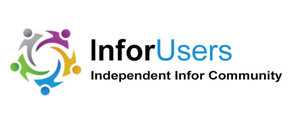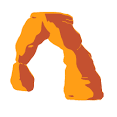The Problem: People Postpone Getting Suspicious Skin Lesions Examined
Skin cancer is a serious disease, especially for those of us who live in high-altitude western states. Our sunny days expose us to more intense UV for longer. This results in an increasing rate of skin cancers. Here are some Skin Cancer Foundation statistics:
- One in five Americans will develop skin cancer by the age of 70.
- More than two people die of skin cancer in the US every hour.
- Having five or more sunburns doubles your risk for melanoma.
- When detected early, the five-year survival rate for melanoma is 99%.
Dermatologists need to help patients more easily report suspicious skin lesions for evaluation. My dermatologist allows me to take a smartphone picture of the suspected lesion and submit it to her for evaluation. I believe she receives reimbursement for performing this process. But she still needs me to visit the office so she can examine it with her own eyes. That means I have to find the time to drive 30 minutes to her office for an examination, and that may not be for several weeks as she is usually booked at least 30 days out. With melanoma, that 30-day window could cause considerable harm depending on the stage of the cancer.
The ability to easily and definitively identify the skin lesion from a smartphone picture would save both the dermatologist and the patient time and money.
The Solution: Smartphone Capabilities Are Emerging to Assist Dermatologists
Google has developed a dermatology symptom checker. It analyzes a smartphone picture of the skin along with information provided by the patient about how long it has been there, their skin type, and other factors. The tool then suggests a possible diagnosis from 288 different conditions. While this application has not yet been certified by the FDA as a diagnostic device, it provides one approach to help people identify potential skin cancers so they can be diagnosed and treated earlier. Some skin types for this solution were not well represented, and Google will still need to advance additional AI learning models to accommodate these populations. Healthcare consumers will use these types of applications to help them feel more empowered for managing their health.
An Australian company, Advanced Human Imaging, received a CE mark for the dermatology artificial intelligence component in its DermaScan SaaS platform. The CE mark covers 27 countries in the EU. The solution captures a smartphone picture for analysis by the DermaScan AI. This platform can classify 588 common and rare skin conditions in 133 categories, including all categories of skin cancer. This solution will enable physicians to get an instant second opinion for suspicious skin anomalies.
Smartphone cameras with associated AI models are emerging to produce healthcare solutions that will drive higher levels of consumer interactions that result in higher levels of self-care. Providers need to become familiar with these new technologies to better support their patients.
The Justification: Quick Guidance for Skin Anomalies Will Improve Patient Outcomes
Enabling consumers to use dermatology symptom checkers or certified diagnostic solutions from their smartphones will alleviate stress while potentially saving lives. How many times have we identified a skin lesion that we believe is suspicious for cancer but put off discussing it with a physician or dermatologist because we are busy? How many skin cancer patients could have experienced better treatment outcomes or survived their skin cancer if they had noticed it and sought treatment sooner? The advancement of smartphones with AI solutions that can accurately identify photos of the consumer's skin will likely improve the diagnosis, treatments, and outcomes for skin cancer.
The Players: Two Early Solutions to Watch
Google and Advanced Human Imaging will drive continued advancement in using smartphone skin photos that enable improved dermatology services. These solutions will provide for direct consumer interactions to provide a higher level of empowerment for self-care.
Google Health—Solutions to enable care teams to deliver more connected care.
Advanced Human Imaging—Smartphone-based human scanning technology with a diverse range of data-driven applications.
Success Factors
- Primary care physicians and dermatologists should begin to evaluate the emerging smartphone/AI solutions that provide symptom-checking capabilities, especially if they have patient populations with higher rates of skin cancer.
- Once the primary care physicians and dermatologists are comfortable with the outcomes of these solutions, they should begin to recommend them to their high-risk patients to drive higher patient satisfaction.
Summary
Smartphones are emerging as a significant disrupter for dermatology services. While smartphone pictures can be used to support teledermatology, they can also be used to drive symptom checkers that support higher levels of self-care management by consumers. While no smartphone/AI solution that analyzes photos of skin lesions has been FDA certified for diagnostic support, the solutions provide a valuable tool for consumers who suspect potential skin cancer and can help guide people to appropriate and timely treatments.
Advanced Human Imaging has created a dermatology service using a cloud-based AI service to analyze smartphone pictures of skin lesions provided by patients. It has been certified for diagnostic support by the EU. This service has been designed to assist physicians with second opinions regarding skin lesion assessments.
Smartphones linked to AI solutions will revolutionize US healthcare. The video capabilities of smartphones are already being used to measure vital signs, and voice biomarkers are also being used to diagnose some diseases. Smartphone usage extends across socioeconomic tiers, and that improves healthcare access and will likely lower healthcare delivery costs.
Photo credit: panya99, Adobe Stock


